At TrustPoint Hospital we believe education is an important first step in the effort to heal from medical conditions & acute psychiatric disorders. Understanding the signs, symptoms, and effects of medical conditions & acute psychiatric disorders can help you get the right type and level of care for yourself or a loved one.
Help a Loved One
Helping a loved one or family member get treatment at TrustPoint Hospital
If someone that you care about has been struggling with both an acute psychiatric disorder and a complex medical condition, you already know how daunting, frustrating, and even overwhelming this experience can be. However, it is important to know that the situation is not hopeless, and that you can play a key role in improving your loved one’s life. Please consider the following:
- Educate yourself about the medical and psychiatric issues that your loved one is experiencing. Speak with experts, consult advocacy organizations, and visit reputable websites. The more you understand what your loved one is experiencing, the better you will be prepared to provide meaningful support.
- Talk to your loved one. Ask him or her to describe what he or she has been experiencing and what types of support would be most valuable and appreciated. Listen to what your loved one says, and pay attention to what topics he or she is unwilling or unable to address. Your ongoing discussions with your loved one can be essential in your effort to understand the problem and locate possible solutions.
- Research the types of treatment that have helped others who were experiencing similar physical and/or mental health issues, and identify treatment programs that appear to be best suited to meeting your loved one’s unique needs. Contact promising programs to arrange a tour of their facilities and introductory meetings with staff members. Include your loved one in these efforts to the degree that he or she is able to participate.
- Set realistic expectations. When your loved one enters treatment, he or she should complete a thorough assessment and evaluation. Once this has been accomplished, talk to the treatment providers to get an accurate understanding of the specific challenges that your loved one is facing and to determine what types of progress and/or improvements are realistic.
- Remember that treatment is just one part of a comprehensive effort to support an individual who is experiencing a complex medical condition and an acute co-occurring psychiatric disorder. Your loved one’s treatment program should provide opportunities for loved ones to learn how best to support the individual in treatment after he or she has completed care and returned home or to a supportive living environment.
Throughout this entire process, make sure that you are not neglecting your own physical and psychological needs. Following a healthy diet, getting ample exercise, and ensuring that you have emotional support are essential. It may also be valuable for you to speak with a counselor or therapist. Remember that you cannot be the most effective source of support to your loved one if you are not maintaining your own physical and mental health.
Why Consider Treatment
Learn more about why to consider treatment at TrustPoint Hospital
The potential negative effects of living with an untreated physical health problem and a co-occurring mental health disorder can vary widely depending upon the nature and severity of the challenges involved. When a person’s physical health involves breathing problems, orthopedic impairments, congenital disorders, head injuries, and/or multiple traumas, the impact can include significant reductions in the individual’s ability to attend school, get and keep a job, communicate effectively with others, and maintain financial independence. When a person who struggles with these physical problems is also experiencing psychiatric issues such as dementia, depression, bipolar disorders, anxiety disorders, psychosis, and/or suicidal ideation, he or she may struggle to effectively express him or herself, to maintain healthy interpersonal relationships, or to successfully seek effective treatment. The combined result of complex medical problems and acute co-occurring psychiatric disorders can include withdrawal and isolation, pervasive sense of hopelessness, and an inability to pursue solutions. Thankfully, with effective professional care, people whose lives have been disrupted by medical problems and co-occurring psychiatric concerns can experience relief from certain symptoms, can learn to manage symptoms that cannot be avoided or reversed, and can experience increased quality of life.
Types of Treatment
Learn more about types of treatment offered at TrustPoint Hospital
TrustPoint Hospital is an acute care general hospital that is located on a serene 17-acre campus in Murfreesboro, Tennessee. With 101 beds and a variety of programs, TrustPoint Hospital offers comprehensive treatment services to individuals who are experiencing a wide range of physical and psychiatric health issues, and is uniquely prepared to provide life-changing care to patients who have been struggling with both complex medical conditions and co-occurring mental health disorders.
Individuals in this latter category can receive life-changing care for acute dual medical and psychiatric needs in our innovative 10-bed Medical Psychiatry Unit, which features integrated services from our Department of Psychiatry and Behavioral Sciences and Department of Medicine. To qualify for admission into the Medical Psychiatry Unit, a prospective patient must have a primary medical diagnosis and a secondary psychiatric diagnosis.
The Medical Psychiatry Unit is an optimal treatment environment for men and women who cannot be admitted to a traditional general psychiatric treatment program because of complex medical needs that require services such as telemetry, intravenous fluids, or oxygen supplementation, and cannot receive optimal care on from a standard medical program because of psychiatric symptoms such as psychosis, cognitive dysfunction, or delirium.
Care within the Medical Psychiatry Unit is provided by an interdisciplinary team of professionals whose experience and expertise allows them to identify, assess, and develop comprehensive plans to address each patient’s physical and mental or behavioral healthcare needs. The following are examples of the many issues for which individuals may receive care within the Medical Psychiatry Unit at TrustPoint Hospital:
- Dementia with behavioral problems
- Substance overdose or withdrawal syndromes
- Infection or electrolyte imbalances and delirium
- Nutritional disorders and altered mental status
- Cardiovascular disease and anxiety or depression
Prior to receiving care within the Medical Psychiatry Unit, each patient will complete a comprehensive multidimensional evaluation that is specially designed for individuals who have been experiencing complex debilitating illnesses and significant functional decline.
Based upon the results of this evaluation, members of the individual’s treatment team will develop a comprehensive personalized plan that will guide the patient’s treatment both during and after his or her time in the Medical Psychiatry Unit. Elements that will be addressed in this personalized plan of care will include treatment, rehabilitation, health promotion, social service interventions, and the commitment of key personnel and support staff to optimize the patient’s health, functional capacity, and ability to live with the greatest degree of independence.
Depending upon the patient’s unique needs, the following elements may be included in his or her treatment in the Medical Psychiatry Unit:
Medication management: Patients whose medical and/or psychiatric symptoms may be alleviated by prescription medications will receive medication management services throughout their time in the Medical Psychiatry Unit. Patients in this unit are seen by an internist and a psychiatrist on a daily basis, with nurses also providing medication management services as needed.
Individual therapy: Patients in the Medical Psychiatry Unit will participate in individual therapy sessions with a social worker on an as-needed basis. Individual therapy can be an excellent opportunity for patients to process successes and setbacks and receive guidance from an experienced professional on issues related to their treatment and recovery.
Group therapy: Patients whose medical needs do not prevent them from participating in group therapy may benefit from social work and nursing groups that are conducted through TrustPoint Hospital’s Adult Behavioral Healthcare Unit. The following are examples of topics that are addressed during these groups:
- Anger management
- Disease / disorder education
- Medication management
- Grief and loss
- Relationships
- Communication skills
- Stress management
- Healthy boundaries
- Guilt and shame
Family therapy: When necessary and appropriate, patients in the Medical Psychiatry Unit and their family members may participate in family therapy sessions under the supervision of an experienced social worker. The many benefits of family therapy include providing a supportive environment in which family members can address the ways that they have been impacted by their loved one’s struggles, helping to heal intrafamilial rifts, and preparing family members to support their loved one’s continued recovery after he or she completes his or her time in the Medical Psychiatry Unit.
Physical therapy: Patients in the Medical Psychiatry Unit who have been experiencing issues related to movement and flexibility may receive a range of physical therapy services, as well as access to orthotics, prosthetics, and wheelchair consultations with staff.
Occupational therapy: Patients in the Medical Psychiatry Unit whose medical conditions have negatively impacted their physical functioning may also benefit from a host of occupational therapy services as well as ultrasounds, electronic stimulation, and kinesio taping, when necessary.
Speech therapy: Patients in the Medical Psychiatry Unit who can benefit from speech therapy services may work with one of TrustPoint’s experienced speech therapists. The services that these professionals may provide include the administration of vital stimulation and fiberoptic endoscopic evaluations in order to determine if a patient’s ability to swallow is impacting his or her communication skills and overall health.
Respiratory therapy: Respiratory services that are available to individuals who are receiving care in the Medical Psychiatry Unit include respiratory therapy, including tracheostomy management and decannulation, Trilogy, oxygen (O2) weaning, and CPAP and BiPAP management services.
As indicated earlier on this page, the comprehensive personalize planning that occurs within the Medical Psychiatry Unit is not designed to address only the time that a patient is receiving care at TrustPoint Hospital. The day an individual enters treatment, the members of his or her treatment team begin to develop a thorough discharge plan that will identify the referrals and services that will support his or her efforts to experience long-term success in maintaining and building upon the progress that he or she makes while in our care.
To learn more about the Medical Psychiatry Unit, or for answers to any questions that you may have about any aspect of treatment at TrustPoint Hospital, please feel free to contact us at your convenience. We look forward to speaking with you and helping you to make the most informed decision for yourself or on behalf of a loved one.






